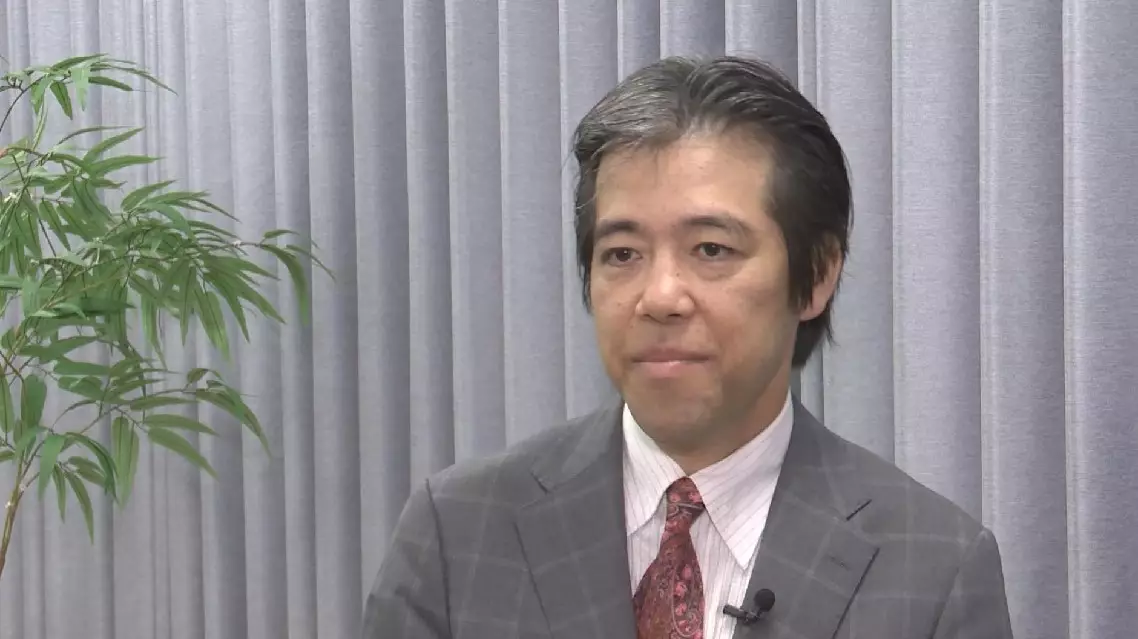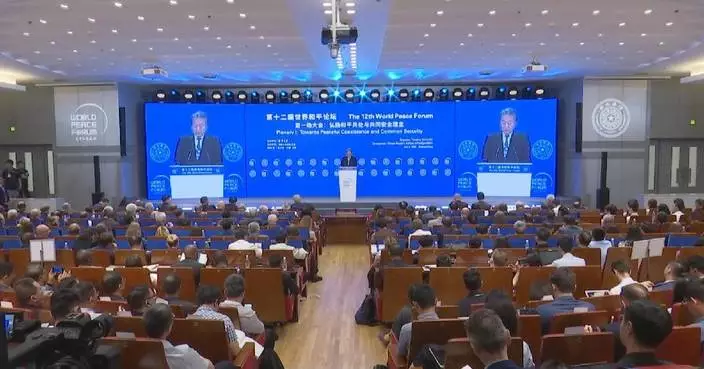The financial policy adopted by the United States is a major factor leading to appreciation of the U.S. dollar and depreciation of the Japanese yen, said a Japanese economist in a recent interview with China Media Group (CMG).
Despite market forecasts showing that the Bank of Japan, the country's central bank, will revise its policy interest rate upwards, there is still a large gap with U.S. long-term interest rates.
Moreover, uncertainty about the timing of the Federal Reserve's interest cuts also plays a role in keeping the large spread between the Japanese yen and the U.S. dollar, according to Hideo Kumano, chief economist at the Dai-ichi Life Research Institute in Japan.
"People expect the Bank of Japan to raise its policy rate, but the policy rate itself is pretty low. Even with an interest rate hike, there is still a big gap between it and the higher U.S. interest rates. And this is the major cause of continued depreciation of the yen," said Kumano.
"Although the Fed is expected to cut interest rates sooner or later, the forecast delay in the interest cut will keep U.S. interest rate high, causing funds to flow from Japan to the U.S., e.g., by selling the yen to buy the dollar. So, the U.S. financial policy is an important cause of accelerating appreciation of the dollar and depreciation of the yen," he said.
At the end of this month, Japan will hold a monetary policy meeting to decide whether to raise the policy interest rates, which is of great concern to the market.
Kumano said he believes that even if the central bank hikes interest rates, it is hard to reverse the yen's decline trend quickly, and that the excessive upward adjustment will even put more pressure on small and medium-sized enterprises to pay interest.
"The room for the Bank of Japan to raise its policy rate is limited, that is from 0.25 percent to 0.5 percent to 1 percent. And the further interest rate hikes will increase the burden on interest repayment by small and medium-sized enterprises. Only an increase in policy interest rates will not stop the yen from depreciating," he continued.
The persistent depreciation of the yen will lead to a sustained increase in the cost of imports, which will push up prices in Japan, bringing more pressure on small and medium-sized enterprises and people's lives, according to the economist.
"If the yen continues to weaken, it will push up costs. Rising prices of all imported goods, including energy and food, will add to the upward pressure on prices in Japan," said Kumano.

U.S. financial policy drives depreciation of Japanese yen: economist
Sci-tech industry insiders and experts at the World AI Conference (WAIC) 2024 in Shanghai shared their views on how to responsibly govern artificial intelligence (AI) technology and address the ethical concerns raised by its explosive development worldwide.
More than 500 companies participated in this year's event, showcasing over 1,500 of the most advanced technologies. It had many companies stating they are investing in AI to boost industrial development.
Gu Yue, vice president and head of marketing for Schneider Electric's China and East Asia Operations, highlighted the company's advancements in AI technology.
"We have already organized one AI hub in China working for this purpose, and then also to keep improving our AI engine, and also to develop those tools, those platforms to empower a customer, either to increase their productivity or to decrease their energy consumption," said Gu.
Since the first edition of the annual event in 2018, this year's WAIC is the first to emphasize AI safety and governance, as reflected in its theme --Governing AI for Good and for All."
The EU Act on Artificial Intelligence, passed in May of this year, became the first major regulation of new technology on the global stage. France is among the countries leading the way and has expressed willingness to work with China to manage risks.
The two countries released a joint declaration on AI and global governance during Chinese President Xi Jinping's state visit to France in May this year, with the aim to promote secure, reliable, and trustworthy AI.
"It's really important that we work together because in an ideal world, the objects that we create would be commons. So, it's good to have for instance, a Chinese AI with a Chinese large language model and a French AI with a French large language model. But if we do this, we're creating gaps between our societies. So, this is why we need those joint statements and working together to try to bridge the gap between our countries," said Gael Varoquaux, research director of the French National Institute for Research in Digital Science and Technology.
On Thursday, the opening session of WAIC 2024 saw the issue of a Shanghai Declaration on Global AI Governance, calling for global cooperation to achieve AI's full potential for the greater wellbeing of all humanity.
"If we lack a global perspective, we're going to have a new divide in AI, just like the digital divide in the past. An AI divide is going to do a lot of damage to our future productivity, to our entire labor market, and to human development as a whole," said Zhang Yaqin, dean of the Institute for AI Industry Research at Tsinghua University.
Regarding cooperating on AI governance, Zhang said it requires countries to communicate and reach a consensus on different issues, including red lines for safety and regulatory standards. He mentioned that China is cooperating with big countries, including the United States, as well as with developing countries to ensure no one is left behind.
There are about a dozen official documents giving detailed explanations of China's philosophy on AI governance.
The Global Security Initiative Concept Paper was released in February last year. It calls for stronger international security to govern AI and manage security risks.
In July last year, interim measures were announced to manage generative AI services, aiming for innovation and balanced development and security of new technologies.
The Global AI Governance Initiative was announced in October. It proposes a people-centered, open, fair, and efficient approach to AI development, security, and governance.

Shanghai AI Conference calls for responsible AI governance cooperation










